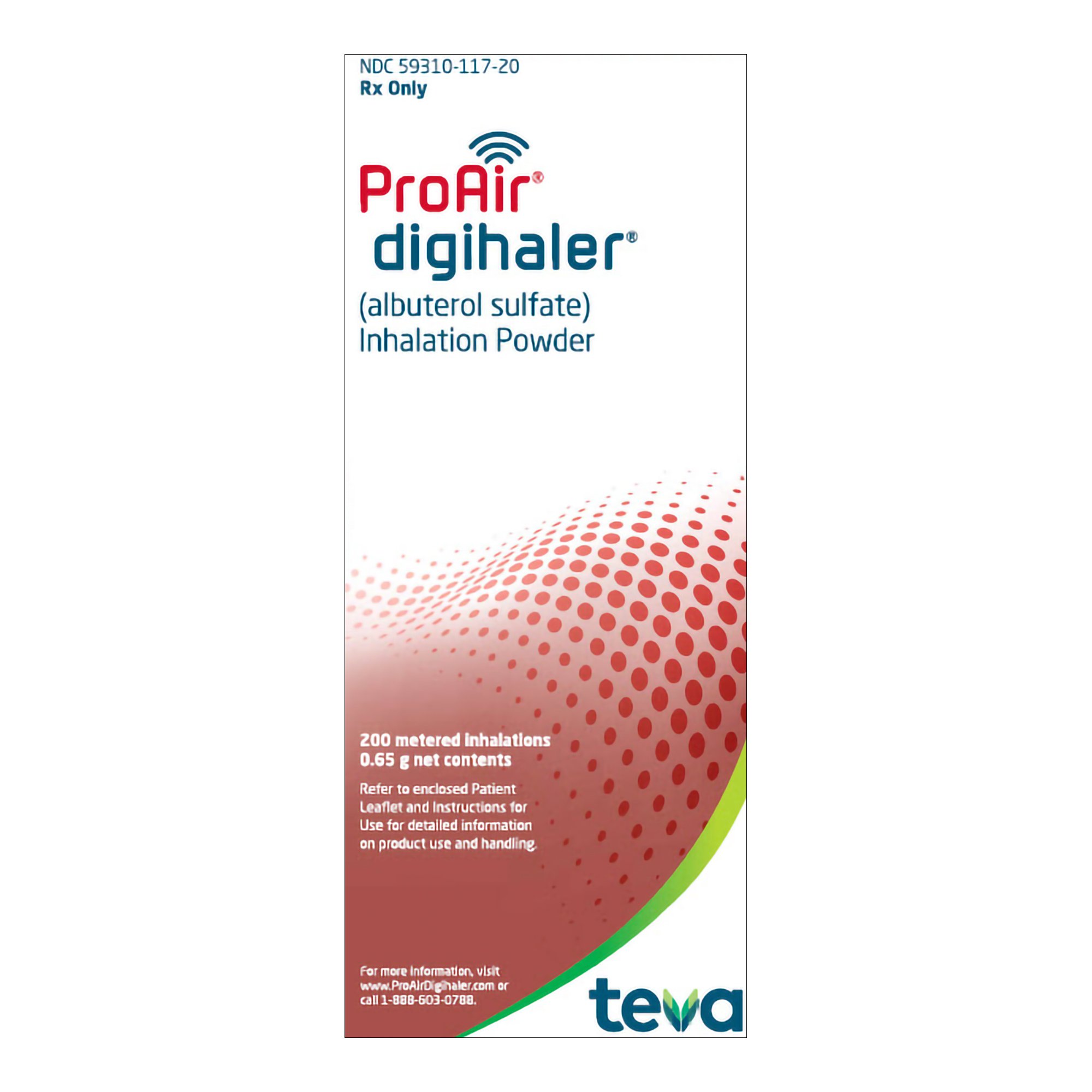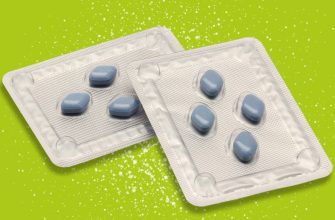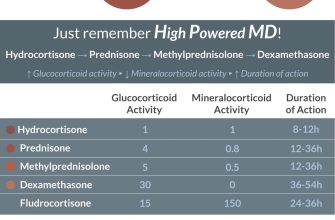Need fast-acting relief from bronchospasm? Albuterol sulfate inhalation powder offers rapid symptom improvement. This medication directly targets the airways, relaxing constricted muscles and easing breathing within minutes. Its quick onset makes it ideal for managing acute asthma exacerbations or exercise-induced bronchospasm.
Remember to follow your doctor’s prescription precisely. Dosage varies depending on age, medical history, and the severity of your condition. Typical administration involves inhaling a specific number of puffs as directed, using the provided inhaler device. Proper inhaler technique is critical for maximizing the medication’s effect. Incorrect use can significantly reduce its efficacy. Seek guidance from your pharmacist or healthcare provider to ensure correct usage.
Potential side effects, while generally mild, include tremor, nervousness, and headache. More serious, though less common, reactions require immediate medical attention. These may include increased heart rate, chest pain, or severe allergic reactions. Always inform your doctor about any medications you are currently taking, including over-the-counter drugs, to avoid potential interactions. Regular monitoring by your doctor is recommended to assess the efficacy of the treatment and to manage any potential side effects.
Albuterol sulfate inhalation powder is a valuable tool for managing respiratory conditions. However, it’s a rescue medication, not a preventative one. To prevent asthma attacks, discuss long-term management strategies with your doctor, which might include other medications, such as inhaled corticosteroids or long-acting bronchodilators.
- Albuterol Sulfate Inhalation Powder: A Comprehensive Guide
- Understanding Albuterol Sulfate Inhalation Powder
- Proper Inhalation Technique
- Potential Side Effects and Precautions
- Storage and Disposal
- Maintaining Your Respiratory Health
- What is Albuterol Sulfate Inhalation Powder and How Does it Work?
- Common Uses and Conditions Treated with Albuterol Sulfate Inhalation Powder
- Proper Administration and Dosage Instructions for Albuterol Sulfate Inhalation Powder
- Using Your Inhaler
- Dosage
- Important Considerations
- Understanding Your Prescription
- Potential Side Effects and Precautions When Using Albuterol Sulfate Inhalation Powder
- Medication Interactions
- Specific Precautions
- Interactions with Other Medications and Potential Risks
- When to Seek Medical Attention Regarding Albuterol Sulfate Inhalation Powder
Albuterol Sulfate Inhalation Powder: A Comprehensive Guide
Always follow your doctor’s instructions precisely regarding dosage and frequency. Incorrect use can hinder treatment effectiveness.
Understanding Albuterol Sulfate Inhalation Powder
Albuterol sulfate inhalation powder is a quick-relief bronchodilator. It relaxes the muscles around your airways, making it easier to breathe. This is particularly helpful during asthma attacks or other respiratory distress. The powder form offers a convenient and potentially less messy delivery method compared to inhalers using liquid solutions.
Proper Inhalation Technique
Ensure you understand the device’s instructions thoroughly. Practice using the inhaler away from treatment to build confidence. A deep, slow inhalation helps distribute the medication effectively. Hold your breath for several seconds after each inhalation to maximize absorption.
Important Note: Consult your physician or pharmacist if you experience difficulties using the inhaler or if you’re unsure about the proper technique. They can provide personalized guidance and address any concerns.
Potential Side Effects and Precautions
Common side effects include headache, muscle tremors, and nervousness. Inform your doctor immediately if you experience a rapid or irregular heartbeat, chest pain, or severe allergic reactions. Albuterol sulfate should be used cautiously by individuals with certain heart conditions, hyperthyroidism, or diabetes. Always declare all medications and health conditions to your doctor before starting any new treatment.
Storage and Disposal
Store the medication as directed on the packaging. Protect it from moisture and extreme temperatures. Dispose of the empty inhaler responsibly, following local guidelines for pharmaceutical waste disposal. Do not discard it in regular household trash.
Maintaining Your Respiratory Health
Remember: Albuterol sulfate inhalation powder treats symptoms; it doesn’t cure underlying respiratory issues. Maintain regular check-ups with your doctor, follow prescribed treatment plans, and manage environmental triggers to control your respiratory health. This will ensure optimal management of your condition.
What is Albuterol Sulfate Inhalation Powder and How Does it Work?
Albuterol sulfate inhalation powder is a fast-acting medication that opens the airways in your lungs. It’s a bronchodilator, meaning it relaxes the muscles surrounding your airways, making it easier to breathe.
It works by targeting beta-2 receptors in your lungs. These receptors, when stimulated by albuterol, trigger a chain reaction that ultimately relaxes the airway muscles. This widening of the airways allows for increased airflow, relieving symptoms of breathing problems like wheezing, shortness of breath, and chest tightness.
- Faster Action than Nebulizers: Inhalation powder delivers medication directly to the lungs, often providing quicker relief than nebulizers.
- Convenient and Portable: The powder inhaler is small and easy to carry, making it convenient for on-the-go use.
- Precise Dosage: Many inhalers provide a measured dose of medication, ensuring consistent treatment.
Remember, always follow your doctor’s instructions for proper use and dosage. Improper use can reduce the medication’s effectiveness. If you experience any adverse effects, contact your healthcare provider immediately.
- Proper Inhalation Technique: Learn the correct breathing technique from your doctor or pharmacist to ensure optimal drug delivery.
- Regular Maintenance: Clean your inhaler as directed to prevent clogging and ensure consistent performance.
- Medication Interactions: Inform your doctor of all medications you are currently taking to avoid potential drug interactions.
Albuterol sulfate inhalation powder offers a convenient and effective way to manage breathing difficulties associated with asthma and other respiratory conditions. However, it’s crucial to use it as prescribed and consult your doctor for any concerns.
Common Uses and Conditions Treated with Albuterol Sulfate Inhalation Powder
Albuterol sulfate inhalation powder primarily treats bronchospasm, a tightening of the airway muscles causing wheezing and shortness of breath. This makes it a cornerstone treatment for asthma and chronic obstructive pulmonary disease (COPD).
Specifically, doctors prescribe this medication to:
| Condition | How Albuterol Helps |
|---|---|
| Asthma | Quickly relieves asthma symptoms by relaxing the airway muscles, improving airflow, and easing breathing difficulties. |
| COPD (Chronic Obstructive Pulmonary Disease) | Provides rapid relief from bronchospasm, improving breathing comfort for individuals with COPD, particularly during exacerbations. |
| Exercise-Induced Bronchoconstriction (EIB) | Used prophylactically before physical activity to prevent bronchospasm triggered by exercise. |
Remember, albuterol sulfate inhalation powder is a rescue medication for immediate symptom relief, not a controller medication for long-term asthma or COPD management. Always follow your doctor’s instructions carefully and discuss any concerns with them.
Proper Administration and Dosage Instructions for Albuterol Sulfate Inhalation Powder
Always follow your doctor’s prescribed dosage and instructions. Never exceed the recommended dose.
Using Your Inhaler
- Check the canister for remaining medication. Discard if empty.
- Remove the cap from the inhaler.
- Breathe out completely.
- Hold the inhaler upright, placing the mouthpiece between your lips.
- Begin a slow, deep breath, and at the same time, press down on the canister to release the medication.
- Continue inhaling deeply until you’ve completed your breath.
- Hold your breath for 10 seconds to allow the medication to reach your lungs.
- Remove the inhaler from your mouth and exhale slowly.
- Repeat steps 3-8 as prescribed by your doctor, usually two puffs at a time.
- Rinse your mouth with water after each use to minimize potential side effects like thrush.
Dosage
Your doctor will determine the appropriate dosage based on your age, condition, and response to the medication. Common dosages range from one to two inhalations, two to four times daily. Specific instructions will be provided on your prescription label.
Important Considerations
- If you experience increased shortness of breath or wheezing after using the inhaler, contact your doctor immediately.
- Store the inhaler as directed on the label, typically at room temperature, away from moisture and heat.
- Never share your inhaler with others.
- Keep the inhaler out of the reach of children and pets.
- Inform your doctor of any other medications you are taking, as interactions may occur.
Understanding Your Prescription
Read the patient information leaflet provided with your medication carefully. It contains details specific to your inhaler and provides comprehensive guidance on use and potential side effects. If you have questions or concerns about your dosage or using your inhaler, contact your doctor or pharmacist.
Potential Side Effects and Precautions When Using Albuterol Sulfate Inhalation Powder
Always follow your doctor’s instructions precisely. Common side effects include tremors, headache, and nervousness. These are usually mild and temporary, but inform your doctor if they persist or worsen. You might experience a fast heartbeat or muscle cramps; seek immediate medical attention if these occur. Some users report throat irritation or cough; using a spacer can help minimize this.
Medication Interactions
Albuterol can interact with other medications. Inform your healthcare provider about all medications, including over-the-counter drugs and supplements, you are taking. This includes diuretics and certain heart medications. Failure to disclose this information may lead to unexpected or adverse interactions.
Specific Precautions
Patients with heart conditions, high blood pressure, hyperthyroidism, diabetes, or seizures should use albuterol with caution and under close medical supervision. Pregnancy and breastfeeding warrant careful consideration and discussion with your doctor. Avoid excessive caffeine intake while using albuterol as this can exacerbate side effects. Always check the expiration date and properly dispose of expired medication.
Interactions with Other Medications and Potential Risks
Albuterol sulfate can interact with several medications, potentially causing unwanted side effects. Discuss all medications you’re taking, including over-the-counter drugs and supplements, with your doctor before starting albuterol.
Beta-blockers: These medications (like metoprolol or atenolol) counteract albuterol’s effects, potentially worsening breathing problems. Your doctor might need to adjust your medication dosages or choose an alternative treatment.
Diuretics: Using albuterol alongside diuretics (water pills) may increase the risk of low potassium levels (hypokalemia). Regular blood tests can help monitor potassium levels.
Digoxin: Albuterol can increase the risk of digoxin toxicity. Your doctor will carefully monitor your digoxin levels if you are using both medications.
MAO inhibitors: Combining albuterol with MAO inhibitors (used to treat depression) may lead to increased blood pressure. This combination usually requires close medical supervision.
Xanthines (like theophylline or aminophylline): Concurrent use with albuterol might elevate the risk of adverse effects, including heart palpitations and tremors. Your doctor will carefully weigh the benefits and risks of this combination.
Other potential risks include increased heart rate, tremors, and nervousness. These side effects are often dose-related; your doctor can adjust your dosage to minimize them. Report any unusual symptoms to your healthcare provider immediately.
This information is for general knowledge and does not substitute professional medical advice. Always consult your doctor or pharmacist before starting, stopping, or changing any medication, particularly if you have pre-existing conditions like heart disease or high blood pressure.
When to Seek Medical Attention Regarding Albuterol Sulfate Inhalation Powder
Contact your doctor immediately if you experience a worsening of your breathing problems after using albuterol, especially if you need to use your inhaler more frequently than usual. Rapid heartbeat, tremors, or nervousness that are unusually severe or persist warrant immediate attention.
Seek medical help if your symptoms don’t improve after several doses of albuterol or if they worsen despite using your inhaler. This includes persistent wheezing, coughing, or shortness of breath.
Chest pain, severe dizziness, or seizures require immediate emergency medical care. These could indicate a serious complication.
Muscle cramps or unusual fatigue following albuterol use should be reported to your physician. These can be signs of electrolyte imbalances.
Unusual changes in your skin, such as rashes or hives, after inhaling albuterol demand immediate medical attention, as it could signify an allergic reaction.
If you experience paradoxical bronchospasm–worsening wheezing after using albuterol–stop using the medication and contact your doctor or go to the emergency room immediately. This is a serious reaction requiring prompt medical intervention.
Always inform your doctor about any side effects you experience, even if they seem minor. This helps monitor your treatment and adjust it as needed. Your doctor can offer personalized advice based on your specific health situation.







